Matariki me Puanga Reading Challenge 2025: Pakeke (13+)
This Matariki, we’re laying down a wero – how many of the pukapuka on our Matariki me Puanga Book List can you read?
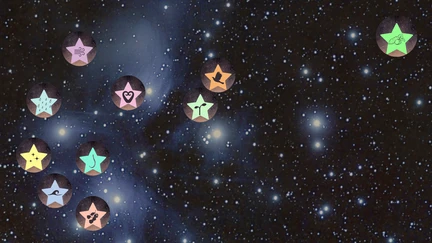
We’ve put together a selection of wonderful pukapuka by Māori writers and you can earn digital badges just by reading them and logging the titles you've read on Beanstack. There are ten badges to collect - one for each whetū in the Matariki cluster, and one for Puanga. There are two separate challenges - one for tamariki (13 and under) and one for pakeke (13 and over). Scroll below to see what titles feature on the pakeke list!
Matariki and winter is the perfect time to curl up with a book and set yourself a reading challenge that includes some amazing Māori writers that may be new to you! The challenge runs until August 31 and all of the books listed are available on our catalogue. Ngā mihi o Matariki, te tau hou Māori. Kia pai tāu pānui! Happy reading!
Pakeke Booklist Titles - fiction and short stories
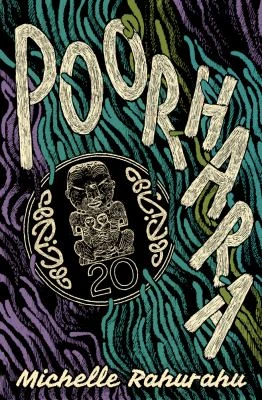
Poorhara by Michelle Rahurahu
"Poorhara is the story of nineteen-year-old Erin, her older cousin Star/Whetu and an impromptu road trip taken over a few days. With the demands and heartbreaks of whanau, poverty and trauma nipping at their heels, Erin and Star trace the path back their whenua, in the hope of salvation - something they ultimately find in each other." - catalogue
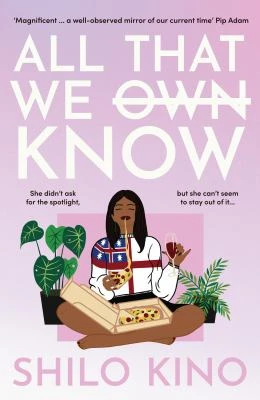
All that we know by Shilo Kino
"Mareikura makes the decision to reclaim her culture, and she begins a year of full immersion language school. What she's not prepared for is the pain triggered by the long-buried traumas of colonisation, oppression, casual racism, and never feeling as though you belong. At the same time, she's navigating her love life - an intense relationship with Kat - friendships old and new, and a family history that she's buried for too long. All That We Know is a powerful story that speaks to some painful truths about our country's history, while keeping readers turning the pages with shining prose, brilliant characterisation, pitch-perfect humour, and a huge amount of heart." - adapted from catalogue
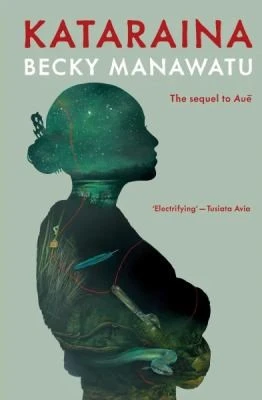
Kataraina by Becky Manawatu
"In Auē eight-year-old Ārama was taken by his brother,Taukiri, to live with Kat and Stu at the farm in Kaikōura, setting in train the tragedy that unfolded. Ārama’s aunty Kat was at the centre of events, but silenced by abuse her voice was absent from the story. In Kataraina, Kat and her whānau take over the telling. As one, they return to her childhood and the time when she first began to feel the greenness of the swamp in her veins – the swamp that holds her tears and the tears of her tīpuna, the swamp on the land owned by Stu that has been growing since the girl shot the man. Becky Manawatu’s new novel is the much-awaited sequel to award-winning bestseller Auē and is unflinching in its portrayal of the destructive ways people love one another and the ancestral whenua on which they stand."--Back cover.
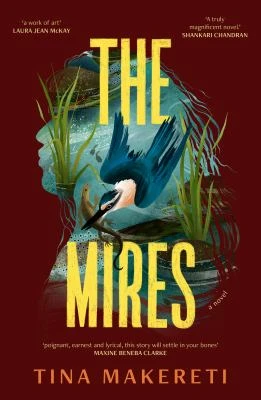
The mires by Tina Makareti
"Three women give birth in different countries and different decades. In the near future, they become neighbours in a coastal town in Aotearoa New Zealand. Single parent Keri has her hands full with four-year-old tearaway Walty and teen Wairere, a strange and gifted child, who always picks up on things that aren't hers to worry about. They live next door to Janet, a white woman with an opinion about everything, and new arrival Sera, whose family are refugees from ecological devastation in Europe. When Janet's son Conor arrives home without warning, sporting a fresh buzzcut and a new tattoo, the quiet tension between the neighbours grows, but no one suspects just how extreme Conor has become. No one except Wairere, who can feel the danger in their midst, and the swamp beneath their street, watching and waiting." - adapted from catalogue
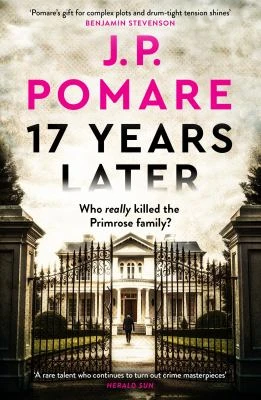
17 years later : who really killed the Primrose family? by J.P. Pomare
" The violent slaughter of the Primrose family while they slept shocked the nation. The family's young live-in chef, Bill Kareama, was swiftly charged with murder and brought to justice. But the brutal crime scarred the idyllic town of Cambridge forever. Seventeen years later, true-crime podcaster Sloane Abbott tracks down prison psychologist TK Phillips. Once a fierce campaigner for an appeal, TK now lives a quiet life with Bill's case firmly in his past. As Sloane lures a reluctant TK back into the fight, evidence emerges that casts new light on the Primroses - and who might have wanted them dead. While the list of suspects grows, Bill's innocence is still far from assured. What will it cost Sloane and TK to uncover the truth?" - catalogue
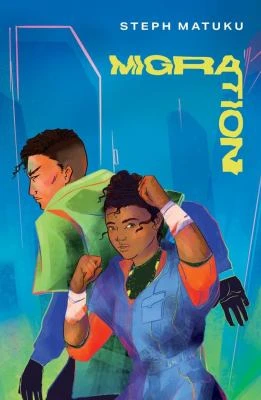
Migration by Steph Matuku
"Farah can't wait to escape her mother's incessant demands and attend the legendary Western Wānanga, where the best military fighters are trained. Through daring battles against her classmates and encounters with cryptic temple masters, Farah sheds her life as a person from the upper ranks of society and becomes an intuitive. But when her world comes under attack, she learns who she really is"--Publisher information.
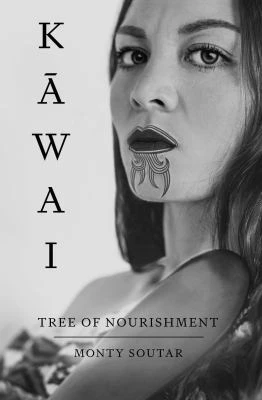
Kāwai. Tree of nourishment : a saga from the uttermost end of the Earth - Aotearoa New Zealand by Monty Soutar
"It’s 1818 on the East Coast of Te Ika-a-Māui, New Zealand. Hine-aute, granddaughter of the legendary warrior Kaitanga, is fleeing through the bush, a precious yet gruesome memento contained in her fishing net. What follows is a gripping tale of a people on the cusp of profound change that is destined to reverberate through many generations to come. The Europeans have arrived, and they’ve brought guns and foreign diseases, ushering in a whole new world of terror and trouble. They’ve also brought a new religion, which will cause Māori to question everything they had believed to be true. Hine and her sons Ipumare and Uha are caught in the crossfire of change, creating fractures in their close familial bonds and undermining everything they hold dear. From raids by musket-wielding war parties to heightened internecine warfare; from the influx of whalers, traders and Christian missionaries to the signing of The Treaty of Waitangi, Kāwai: Tree of Nourishment strikes hard and deep into the heart of the initial impact of colonisation on Māori, and is guaranteed to leave readers stunned."--Book Jacket.
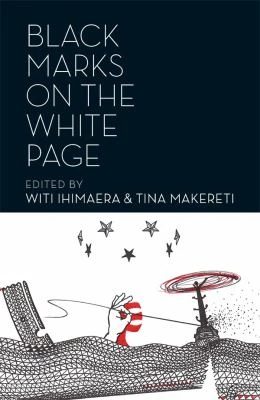
Black marks on the white page, edited by Witi Ihimaera and Tina Makareti
"Stones move, whale bones rise out of the ground like cities, a man figures out how to raise seven daughters alone. Sometimes gods speak or we find ourselves in a not-too distant future. Here are the glorious, painful, sharp and funny 21st century stories of Māori and Pasifika writers from all over the world. Vibrant, provocative and aesthetically exciting, these stories expand our sense of what is possible in Indigenous Oceanic writing. Witi Ihimaera and Tina Makereti present the very best new and uncollected stories and novel excerpts, creating a talanoa, a conversation, where the stories do the talking. And because our commonalities are more stimulating than our differences, the anthology also includes guest work from an Aboriginal Australian writer, and several visual artists whose work speaks to similar kaupapa"--Publisher information.
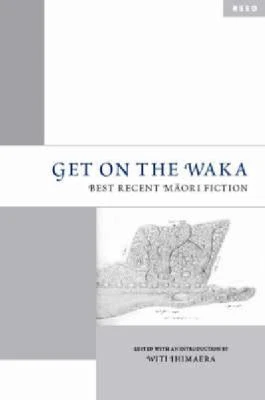
Get on the waka : best recent Māori fiction
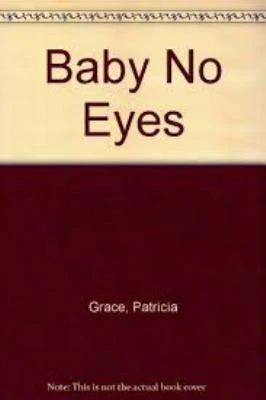
Baby no-eyes by Patricia Grace
"Tawera and his sister are inseparable, in a relationship that is impossible for others to share. In fact his whole family is bonded by secrets, their genealogy stitched together by pride, shame and sometimes despair. Baby No - eyes has several threads running through it. One is the death of Te Paania's child, which is based on the true story of a dead child who was returned to her whanau with her eyes missing. In the years after her death, Baby has a continuing presence throughout the novel. The second thread involves an iwi group, who are involved in a land claim that results in them occupying a downtown council site. The ghost of Baby No - eyes accompanies Gran Kura, Te Paania and Tawera, as Te Paania immerses herself in political issues and Tawera becomes a teenager, and as Gran reaches the end of her life." - catalogue
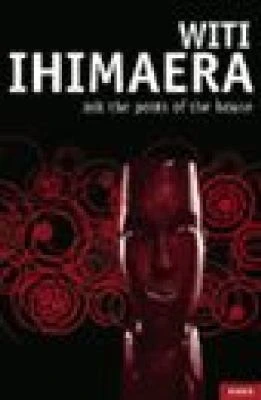
Ask the posts of the house by Witi Ihimaera
"A brand new collection of short stories, including five novella-length stories. They show an intriging range of narratives from historical fiction to contemporary comedy. Readers will delight in Ihimaera's passionate, humorous & sometimes provocative writing, & in the rich array of characters introduced in this collection. All the stories are accompanied by notes on their origins - & there is an alternative ending offered to Dead of Night." - catalogue
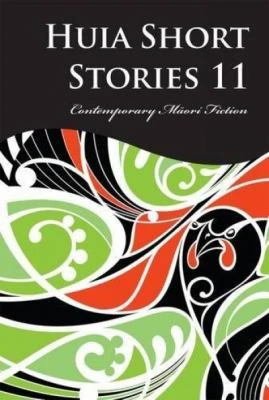
Huia short stories 11 : contemporary Māori fiction
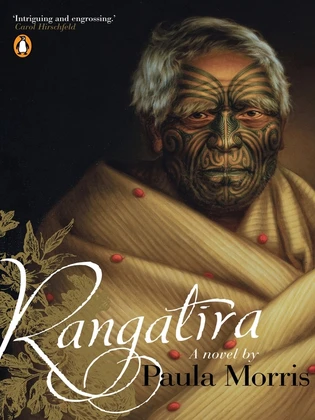
Rangatira by Paula Morris
"Based on a true story Auckland, June 1886. Ngati Wai chief Paratene Te Manu spends long sessions, over three long days, having his portrait painted by the Bohemian painter Gottfried Lindauer. Hearing of Lindauer's planned trip to England reminds him of his own journey there, twenty years earlier, with a party of northern rangatira. As he sits for Lindauer, Paratene retreats deeper and deeper into the past, from the triumphs in London and their meetings with royalty to the disintegration of the visit into poverty, mistrust, and humiliation." - catalogue
Pakeke Booklist Titles - non-fiction, poetry and a play
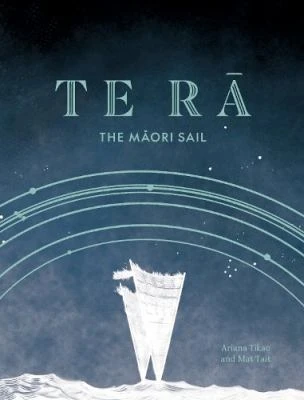
Te rā : the Māori sail by Ariana Tikao
''Whakaarahia anō te rā kaihau! Raise up again the billowing sail! The story of Te Rā -- the last known customary Māori sail -- weaves together our past, present and future. skillfully woven from harakeke more than 200 years ago, Te Rā has been held for many years in the British Museum in London. Now Te Rā returns to Aotearoa New Zealand. Lyrically written by Ariana Tikao as if from the point view of Te Rā and ... illustrated by Matt Tait, this book commemorates the home coming of one of our oldest taoka, an ancestor of our nation''--Back cover.
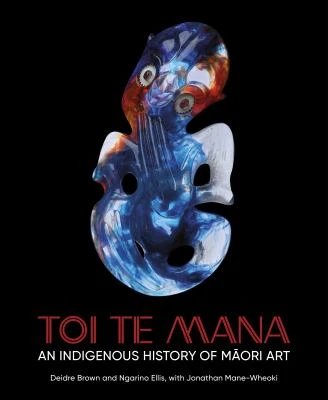
Toi te mana : an Indigenous history of Māori art by Deidre Brown
"The authors explore a wide field of art practice: raranga (plaiting), whatu (weaving), moko (tattoo), whakairo (carving), rākai (jewellery), kākahu (textiles), whare (architecture), toi whenua (rock art), painting, photography, sculpture, ceramics, installation art, digital media and film. And they do so over a long time period - from the arrival of Pacific voyagers 800 years ago to contemporary artists in Aotearoa and around the world today. Through wide-ranging chapters alongside focused breakout boxes on individual artists, movements and events, Toi Te Mana is a waka eke noa"--Publisher's website.
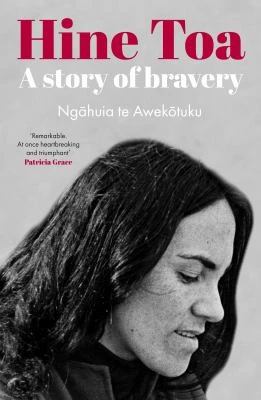
Hine Toa : a story of bravery by Ngāhuia Te Awekōtuku
"In the 1950s, a young Ngāhuia is fostered by a family who believe in hard work and community. Although close to her kuia, she craves more: she wants higher education and refined living. But whānau dismiss her dreams. To them, she is just a show-off, always getting into trouble, talking back and running away. In this fiery memoir about identity and belonging, Ngāhuia te Awekōtuku describes what was possible for a restless working-class girl from the pā. After moving to Auckland for university, Ngāhuia advocates resistance as a founding member of Ngā Tamatoa and the Women's and Gay Liberation movements, becoming a critical voice in protests from Waitangi to the streets of Wellington"--Publisher information.
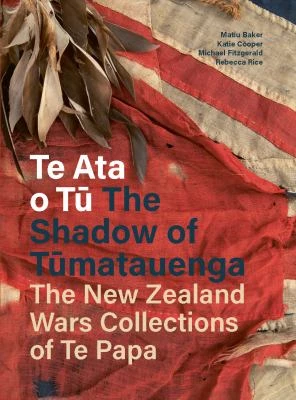
Te ata o Tū = The shadow of Tūmatauenga : the New Zealand Wars collections of Te Papa
"The wars of 1845-72 were described by James Belich as 'bitter and bloody struggles, as important to New Zealand as were the Civil Wars to England and the United States'. The conflict's themes of land and sovereignty continue to resonate today. This richly illustrated book, developed in partnership with iwi, delves into Te Papa's Mātauranga Māori, History and Art collections to explore taonga and artefacts intimately connected with the key events and players associated with the New Zealand Wars, sparking conversation and debate and shedding new light on our troubled colonial past. Contributing essays from Basil Keane, Arini Loader, Danny Keenan, Jade Kake, Mike Ross, Paul Meredith, Monty Soutar, Puawai Cairns, and Ria Hall."--Publisher's website.
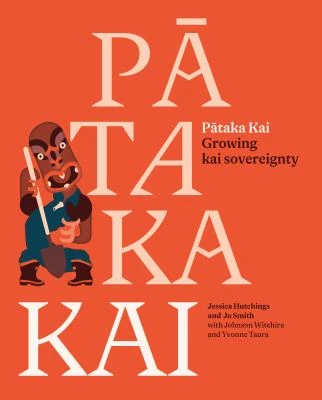
Pātaka kai : growing kai sovereignty by Jessica Hutchings
"We face a biodiversity crisis and a climate meltdown. Our food systems are broken, our soils are depleted and our seeds are owned by global corporations. Meanwhile colonial capitalism dictates the mainstream response to these crises, drowning out Indigenous perspectives and solutions, yet Indigenous practices and understandings of kai (food) offer important pathways to ensuring ecological, cultural and socio-economic sustainability as well as greater connection to kai in our everyday lives. This book salutes Indigenous food heroes from across Aotearoa and neighbouring islands in Te Moana-nui-a-Kiwa who take a holistic approach that considers the interconnectedness of people, land and food." - adapted from publisher information
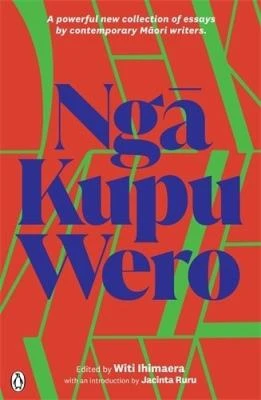
Ngā kupu wero : a powerful new collection of non-fiction by contemporary Māori writers
"Ngā Kupu Wero brings together a bounty of essays, articles, commentary and creative non-fiction on the political, cultural and social issues that challenge us today. From colonisation to identity, from creativity to mātauranga Māori, over 60 writers explore the power of the word. Accept the challenge of the wero. Join the kōrero. Ngā Kupu Wero is a companion volume to Te Awa o Kupu, which presents recent poetry and fiction. Together these two passionate and vibrant anthologies reveal that the irrepressible river of words flowing from Māori writers today shows us who and what we are"--Publisher information.
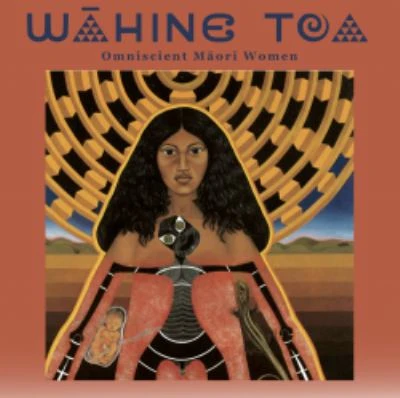
Wāhine toa : omniscient Māori women by Robyn Kahukiwa
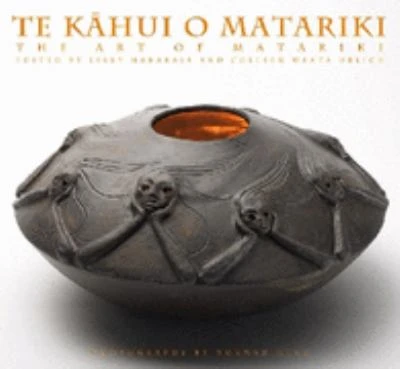
Te kāhui o Matariki : contemporary Māori art of Matariki by Libby Hakaraia
"Te Kahui o Matariki includes the work of 41 leading contemporary Maori artists who explore what the star constellation Matariki means to them. The appearance of Matariki in early winter signifies many things, including the end of one year-long cycle and the start of another. The artists all created works for the book, including paintings, sculpture, weaving, carving, clay work and mixed media." - catalogue
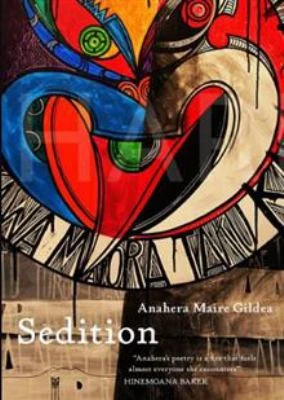
Sedition by Anahera Gildea
"Comprising a significant body of previously unpublished work, Sedition represents a vital political intervention in the poetic landscape of Aotearoa. The work ranges and rages through generations, taking in a mother's anguish and a daughter's hunger for justice. Born of lava, this poetry responds to and resists the commodification of culture and whenua, and the perversity of everyday acts of neocolonisation, The waves and howls of Sedition elevate the modern individual and collective experience to the level of the epic. This is poetry that experiences trauma and yet takes the deep time required to untangle its threads. Anahera weaves life anew in a pattern that honours trauma but does not replicate its power"--Back cover.

Whaea blue by Talia Marshall
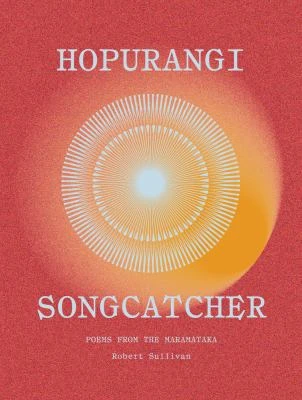
Hopurangi - songcatcher : poems from the maramataka by Robert Sullivan
"After rejoining social media, Robert Sullivan wrote and posted a poem a day over two and a half months - the poems collected in Hopurangi--Songcatcher. Inspired by the cyclical energies of the Maramataka, these poems see the poet re-finding himself and his world - in the mātauranga of his kuia from the Ngāti Hau and Ngāti Kaharau hapū of Ngāpuhi; in his mother's stories from his Ngāti Manu hapū at Kāretu; in the singing and storytelling at Puketeraki Marae, home of his father's people of Kāti Huirapa, Kāti Māmoe, Waitaha and Kāi Tahu Whānui in Te Tai o Āraiteuru; and in the fellowship of friends on Facebook. Tīhei mauri ora!"--Back cover.
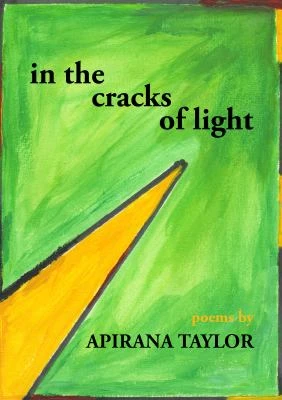
In the cracks of light by Apriana Taylor
"In the cracks of light, Apirana Taylor's seventh book of poetry, shows one of Aotearoa New Zealand's most prolific and versatile writers at his best. The seventy-three short poems here challenge our conceptions of poetic form. They are minimalist in construction but ambitious in emotional impact. They burst out of their small spaces like gas expanding in a cylinder and pushing a piston. They expertly inhabit both the natural and the political worlds, sometimes simultaneously, because Taylor is wise enough to know that they can't be separated, especially in a colonised land. A new volume by Apirana Taylor is an occasion. Relish it." - catalogue
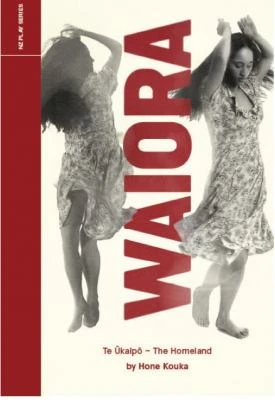
Waiora : te ūkaipo = the homeland by Hone Kouka
"It's 1965 and a Māori family prepares a hāngi to celebrate a birthday with their Pākehā guests. The family have recently left their ancestral home, Waiora, on the East Coast of the North Island, to a colder climate in the South. Rongo is feeling lost. She hasn't been able to sing since the move, but her tīpuna are always close by.Waiora is a New Zealand theatre classic. It was first published in 1997 and has been performed locally and overseas and studied in schools and universities. This new edition includes updates from the playwright and a new foreword and study notes. Poignant and comedic, this play explores ideas of home and belonging"--Publisher information.
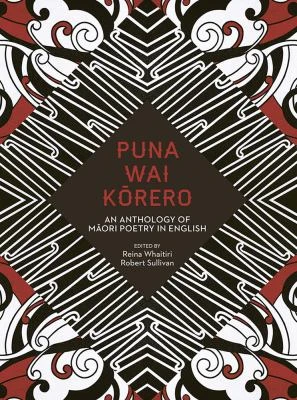
Puna wai kōrero : an anthology of Māori poetry in English
"Two leading Māori scholars collect Māori poetic voices in English and let flow a wellspring of poetry. From both revered established writers as well as exciting new voices, the poems in Puna Wai Korero offer a broad picture of Maori poetry in English. The voices are many and diverse: confident, angry, traditional, respectful, experimental, despairing and full of hope, expressing a range of poetic techniques and the full scope of what it is to be Māori"--Publisher's website.
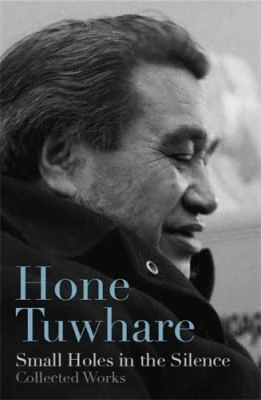
Small holes in the silence : collected works by Hone Tuwhare
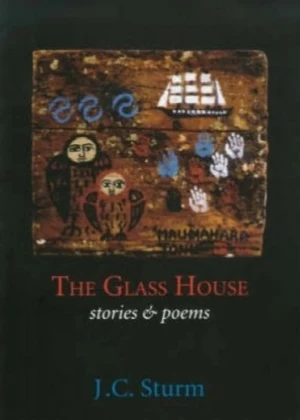
The glass house : stories & poems by J.C. Sturm
This is the long-awaited collection of new work by one of New Zealand's finest and most popular storytellers and poets. J.C. Sturm's stories are unerring in their honesty, intimacy and subtle humour. In this collection a coda of poems aptly complements each story; in all there are four stories and eleven poems. This is the work of a consummate writer. J.C. Sturm is also the author of "House of the Talking Cat", "How Things Are", "Dedications" and "Postscripts."
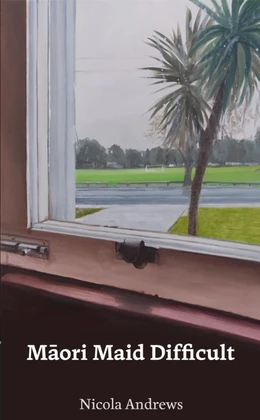
Māori maid difficult by Nicola Andrews
"This collection twines together themes of takatāpui (queer) urban Pasifika identity, Indigenous sovereignty and language, familial obligations, and jester-like wit for the chronically online. This poetic work will appeal to those with interests in Indigenous rights and languages, migration, and the ways we can push against expectations of gender and family roles"--Author's website.